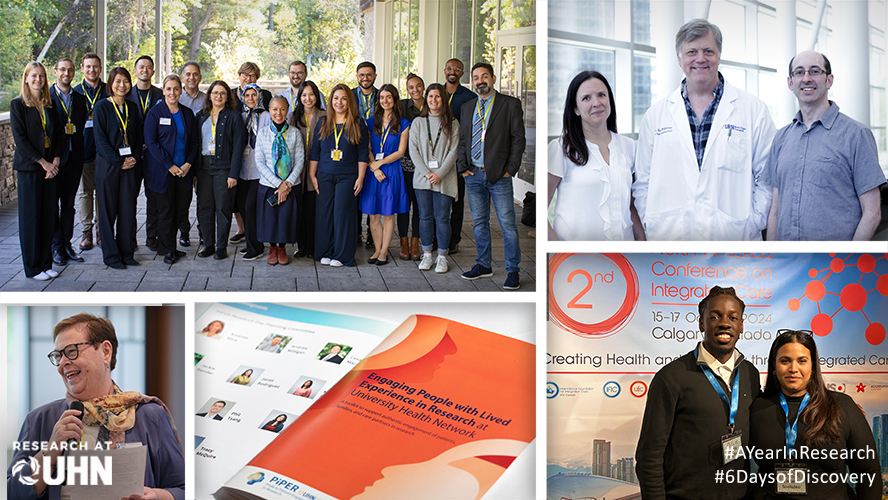
At UHN, we believe that advancing health care requires collaboration—and patients are essential partners in this journey. By engaging people with lived experience (patients, their family members, and care partners), we aim to strengthen research, making it more relevant and improving outcomes.
As part of UHN’s priority to engage patients, the Pride in Patient Engagement in Research (PiPER) initiative was launched in 2022. PiPER’s vision is to establish UHN as a global leader in patient engagement by embedding patient perspectives at the core of research.
The PiPER initiative is leading the way in ensuring that patient engagement is authentic, accountable, and transparent. This includes creating organizational structures and technologies that foster the integration of people with lived experiences into our research processes. By doing so, we ensure that patient involvement is meaningful and results in research that directly benefits those that we aim to serve.
Building a Foundation for Authentic Engagement
In 2024, PiPER strengthened its brand by launching a website, digital tools, and a comprehensive toolkit to help researchers effectively engage people with lived experience in their teams, distributing over 2,700 copies at UHN and across Canada. The toolkit earned PiPER an Inclusive Research Excellence grant from the Canadian Institutes of Health Research, fueling further growth and providing essential funding to continue our mission of integrating patient perspectives into UHN research.
Fostering a Culture of Engagement
To further support patient involvement, PiPER organized and held its second PiPER Research Day, bringing together over 200 researchers, patients, and care partners to exchange insights and share best practices. This gathering, along with numerous Community of Practice sessions held throughout the year, a quarterly newsletter, and tip sheets to ensure grant success, has helped to build capacity and knowledge for patient engagement in research across UHN. PiPER also launched internal grant opportunities to support collaborative projects between dyads or pairs of researchers and patient partners to ensure the patients in our clinical waiting areas are represented on our research teams.
Partnering in Research
UHN researchers are already implementing PiPER’s goals. In a collaborative effort between the Toronto General Hospital Research Institute, the University of Toronto, and other institutions, researchers are focused on identifying the specific cells that drive disease progression in a rare autoimmune liver disease, with patient experiences playing a central role in shaping the research to ensure it aligns with real-world needs.
Looking to the Future
By including the voices of patients and their families, UHN is not only enhancing the quality of its research, but also making it more relevant and impactful. Looking ahead, the PiPER team has many more initiatives targeted at elevating patient engagement: they are developing plain language summaries of UHN research, creating policies for fair compensation of patient partners, and organizing future research days. Their ongoing efforts are ensuring that patient engagement in research becomes a standard, not just an option, at UHN.
This story is a part of our 2024 Year In Research campaign. Check out more feature stories here.




